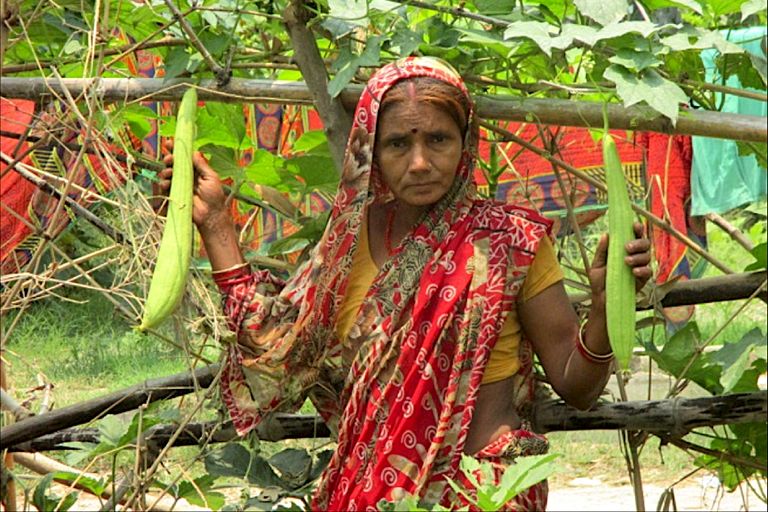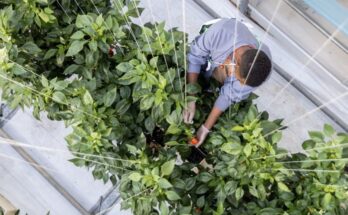Agriculture is the primary occupation for Phulan Devi and her husband Kamlesh Mahato, living in Ajna village, block Kalyanpur in Samastipur dsitrcit of Bihar. They own a small farmland of one bigha (approximately 1600 square metres) on which they grow commercial crops like paddy, wheat, corn, and sometimes vegetables like tomatoes. Her family used to buy vegetables from the market for consumption.
Phulan was part of the village leadership school, a citizen leadership platform organised under the aegis of Sehgal Foundation’s Good Rural Governance programme. These leadership schools inform citizens on government programmes meant to benefit them, and make them aware about their rights and entitlements. In one of the sessions of the village leadership school, Phulan came to know about the distribution of kitchen garden seeds by the Sehgal Foundation Agriculture Development team; she was curious and decided to create a kitchen garden in her backyard.
Phulan planted almost all the 10 types of seeds, given as part of the kit, in her backyard that was about 50 meters away from her house. Being a farmer herself, she was aware of the use of fertilisers and pesticides. She attempted to experiment in her ‘kitchen garden’ and her innovative approach and careful supervision created a boom in her backyard. Karela (bitter gourd), kheera (cucumber), bhindi (okra) grew in abundance; this resulted in a huge sale of the surplus produce in the local market. Due to this, Phulan earned Rs 6000 as extra income, which she invested in her household. Phulan and her husband were convinced about the benefits of the kitchen garden, and decided to continue with the initiative. They now enjoy the benefits of their hard work, not only in the form of extra income, but also in the form of diversification of household diet leading to consumption of balanced meals at the end of a hard day’s work.
Citing the transformation she witnessed, Phulan Devi says, “The first year’s experience with the kitchen garden initiative has been extremely promising and I am looking forward to investing more time in the coming years on this initiative.” She even made a suggestion to the foundation to divide the distribution of seeds in two ’batches’, instead of giving them all at one go; this she says could maximise the utilisation of the distributed seeds.
Phulan’s story clearly shows that kitchen gardening provides a platform to the rural poor and marginalised communities, with the aim of creating supplemental food production, as well as an opportunity to improve livelihoods. It is seen that family labour, including women and children, become particularly important in the management of these gardens. Empowered with a minimum required skill set and knowledge, rural households can easily fight with challenges such as crop losses and other negative implications, thereby making kitchen gardens a profitable initiative.
(Debika Goswami is the Programme Leader, Governance and Policy Advocacy at SM Sehgal Foundation. Views expressed in the article are author’s own.)
Kitchen Garden: Transforming small holder farmers




